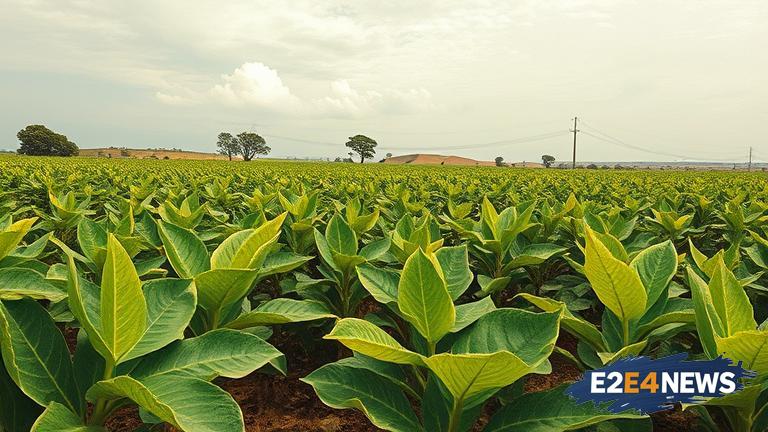Tobacco farmers in Zimbabwe have been advocating for an indigenous tobacco policy that would prioritize local ownership and control in the industry. The farmers believe that such a policy would help to boost the local economy and create more opportunities for indigenous Zimbabweans. Currently, the tobacco industry in Zimbabwe is dominated by foreign companies, which has led to concerns about the exploitation of local farmers and the lack of benefits for the local community. The tobacco farmers are demanding that the government implements a policy that would ensure that at least 50% of the tobacco industry is owned and controlled by indigenous Zimbabweans. This would include the ownership of tobacco farms, processing plants, and marketing companies. The farmers argue that this would help to create more jobs and stimulate economic growth in rural areas. They also believe that it would help to reduce poverty and improve living standards for local communities. The tobacco industry is one of the largest contributors to Zimbabwe’s economy, and the farmers believe that it is essential to have a policy that promotes local ownership and control. The farmers have been engaging with the government and other stakeholders to push for the implementation of an indigenous tobacco policy. They have also been working with other organizations to raise awareness about the importance of promoting local ownership and control in the industry. The farmers believe that this would help to create a more sustainable and equitable industry that benefits local communities. They are also calling for the government to provide support for local farmers, including training and financing, to help them to improve their productivity and competitiveness. The government has been urged to review the current tobacco policy and make necessary amendments to promote local ownership and control. The farmers are hopeful that the government will respond positively to their demands and implement a policy that prioritizes local ownership and control. The implementation of an indigenous tobacco policy would be a significant step towards promoting economic empowerment and reducing poverty in rural areas. It would also help to promote food security and improve living standards for local communities. The tobacco farmers are committed to continuing their advocacy efforts until their demands are met. They believe that it is essential to have a policy that promotes local ownership and control in the industry, and they are willing to work with the government and other stakeholders to achieve this goal. The farmers are also calling for the government to ensure that the policy is implemented in a way that is transparent and accountable, and that it benefits local communities. They believe that this would help to create a more sustainable and equitable industry that benefits local communities. The tobacco industry has the potential to contribute significantly to Zimbabwe’s economy, and the farmers believe that it is essential to have a policy that promotes local ownership and control. The implementation of an indigenous tobacco policy would be a significant step towards achieving this goal. The farmers are hopeful that the government will respond positively to their demands and implement a policy that prioritizes local ownership and control. The farmers are committed to continuing their advocacy efforts until their demands are met. They believe that it is essential to have a policy that promotes local ownership and control in the industry, and they are willing to work with the government and other stakeholders to achieve this goal.
